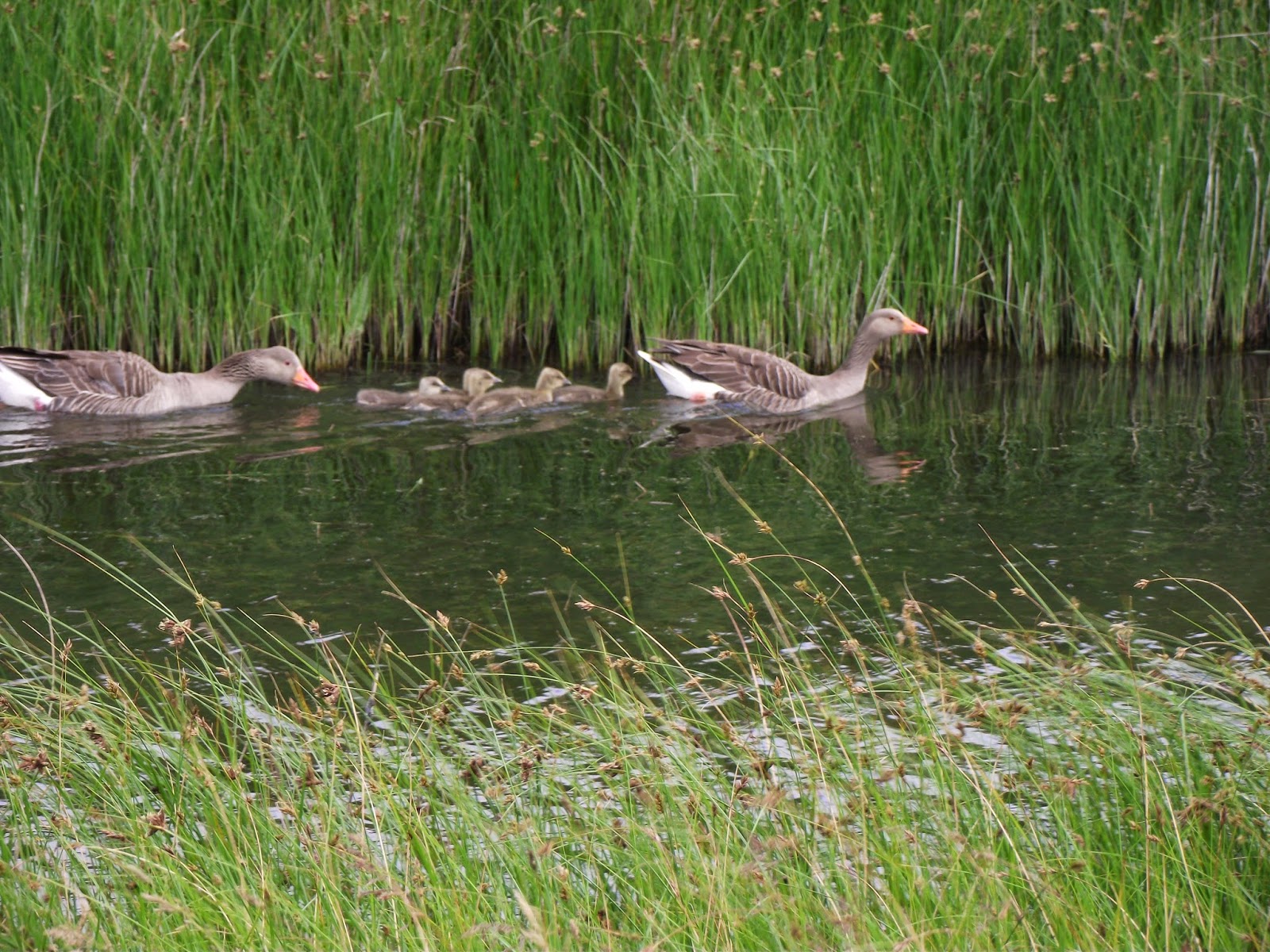With the breeding season now coming to and end and many young birds and their parent dispersing in post-breeding flocks and little water to attract passage birds, it'll become an increasingly quiet next few months wildlife wise, with mainly butterflies to brighten up each visit.
And of course wildflowers, along one ditch in particular there are clouds of this Marsh Bedstraw in flower at the moment, not the most spectacular of flowers but I like it.
Every year I can't resist photographing the bulls on their summer holidays with the ladies. There are two of these fine black specimens in a herd of around thirty cows in one field on the reserve, that's fifteen each if they share - reminds me of some of the better nights in the Swinging 60's!
One early morning out there I watched these two sailing vessels making their way down the Swale, the sailing barge looked like it was chasing after it's baby barge.
One morning last week I came across this late brood of Greylag Geese being shepherded along a ditch by their parents.
I took this photo of a Redshank on Sunday as I drove back down the Elmley track. It was sat on top of a gate post and I was amazed that it allowed my car to edge to within a few feet of it, close enough to take this photo with my little camera through the windscreen.
On a more serious note, Kent has been very excited this last couple of weeks to find that it's first pair of Black-winged Stilts were nesting, fortunately on the RSPB's Cliffe marshes reserve, where they were given 24hr surveillance. Four chicks duly hatched and were photographed and what happened next - they were bloody predated!
This seems to be happening more and more these days, look at Springwatch this year, where a complete colony of breeding Black-headed Gulls and Avocets was cleaned out in one night by a single rogue badger. It's happening far too frequently now a days, where birds breeding for the first time in this country, or who are only breeding in tiny numbers, are having their attempts to establish breeding colonies ruined by very common and predatory species such as Herring Gulls, LBB Gulls, Magpies, crows and foxes. It really is about time that we took a firmer stance with some of these predator species and increased culling rather than continually giving in to the ridiculous and likely argument put up by bunny-huggers that losing the first ever brood of BW Stilts is justifiable because what ever ate them has a right to live and feed its young just the same, despite the fact that Herring Gulls say, outnumber them by hundreds of thousands to one. In my book, that one rogue badger at Minsmere, (and one hopes that the RSPB do quietly achieve that), should "disappear" one night.







Derek. I have had a few emails concerning Terrapins at Westbere Lakes in the dykes where the Norfolk Hawkers are. I'm sure they will happily munch on them and their larvae. I went down tonight and saw one the size of a dinner plate, i'm told there are a handful there. Who an I contact please to maybe see if they an be removed. I assume they have been dropped off there in the past and have done well.
ReplyDeletethanks
Will get back to you on that one Marc asp.
ReplyDeleteMarc,
ReplyDeleteE-Mail sent to you.
Enormous Terrapin seen sunning itself in a reed bed in RSPB Rainham Marshes last Saturday.
ReplyDeleteBill M.
I suspect that there are a lot more still about than people know about Bill. Although most were released after the Ninja Turtle craze years ago, I guess some still get put out even now when they get too big.
ReplyDelete